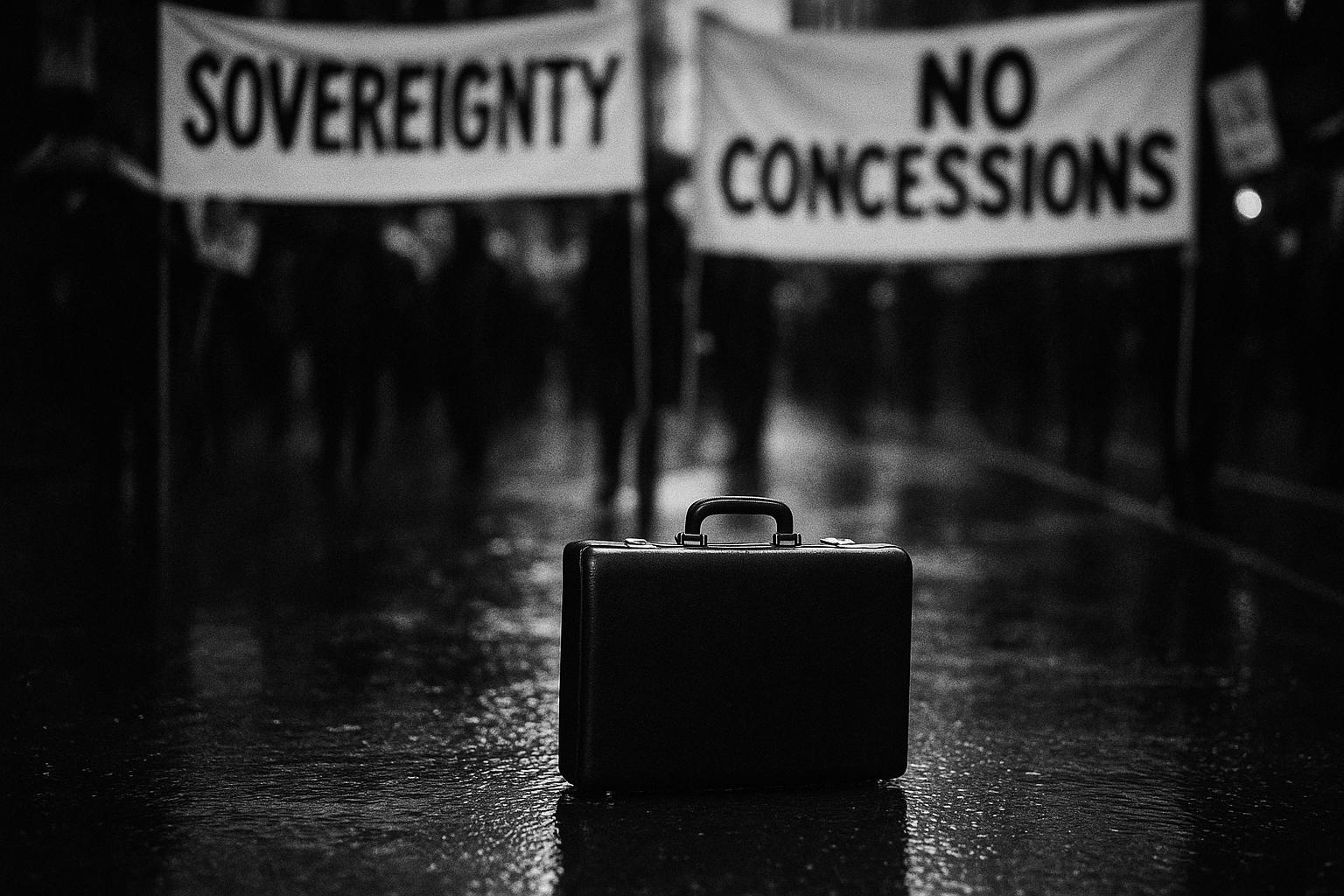Russia has publicly accused Britain of trying to derail a planned summit between Presidents Vladimir Putin and Donald Trump, casting London and some European capitals as intent on using Ukraine “as an anti‑Russian battering ram”. The broadside, issued by the Russian Embassy in London and carried in state and semi‑state outlets, framed recent Western statements and actions as efforts to obstruct talks aimed at ending the conflict. According to reporting from the Express and Russian outlets, the embassy said those European initiatives threatened to prolong hostilities rather than foster a settlement.
The allegations come as the two presidents prepare to meet in Alaska, a summit Moscow characterises as an opportunity to explore ending the war. Kremlin aides have warned that unnamed countries will make “titanic efforts” to disrupt the meeting, language that Reuters says reflects deep suspicion in Moscow about Western intentions. At the same time, Western coverage notes that details of the proposed summit remain vague, and that officials on both sides are cautious about expectations for substantive progress.
British politicians and diplomats have been quick to stress that any negotiated settlement must preserve Ukraine’s sovereignty and territorial integrity. Shadow Foreign Secretary Dame Priti Patel told the Express that “Putin has to know that if he tests the Euro‑Atlantic alliance, he will fail,” arguing that Britain must not reward aggression and must stand up for the principles of democracy, liberty and the rule of law. Those themes also underpin formal UK diplomacy: in March 2025 the UK told the Organisation for Security and Co‑operation in Europe that any peace must be negotiated from a position of strength for Kyiv and must guarantee Ukraine’s security.
The government’s public posture is to reject the idea that the UK seeks to prolong the conflict. In a statement to the OSCE earlier this year, the UK said it would continue support for Ukraine until Kyiv could accept a durable and just peace, stressing adherence to international legal norms and the unacceptability of territorial concessions extracted by force. That official line is intended to counter Moscow’s narrative that Western states are simply seeking confrontation rather than resolution.
Public and elite reaction inside Russia has been largely upbeat about the prospect of a summit, with state commentators portraying the invitation as a diplomatic prize for the Kremlin. Western analysts caution, however, that domestic celebration does not equate to concessions, noting Moscow’s long‑standing strategic aims in Ukraine. Russian media reports and the embassy’s statements say Russia remains open to negotiation, but they also accuse Western governments and media of disinformation that, in Moscow’s telling, complicates the prospects for talks.
European leaders and diplomats outside Moscow have voiced a different anxiety: that a bilateral meeting between the US and Russia could sideline Kyiv and risk legitimising territorial changes achieved by force. Reuters and the Washington Post record concern among analysts that a hasty deal might reward aggression and undermine the post‑war legal order. TASS and other Russian outlets also warned against Western military involvement that, in their view, could escalate into direct NATO–Russia confrontations — an accusation that Western officials reject as part of Moscow’s wider attempt to shift blame for the deadlock.
The stakes are straightforward: any move that removes Ukraine from the table risks producing a settlement that Moscow could portray as acceptance of its gains, while excluding Kyiv would be politically and morally fraught for Western partners who have pledged to defend its sovereignty. Moscow’s accusations that Britain and others are attempting to sabotage diplomacy are now part of the public debate, but so too are firm UK assurances — voiced in parliament and at international fora — that peace must not come at the price of Ukraine’s territorial integrity. As the Alaska meeting approaches, diplomats and analysts say the central challenge will be to keep Kyiv engaged and to ensure that any negotiations reinforce, rather than erode, international norms.
📌 Reference Map:
##Reference Map:
- Paragraph 1 – [1], [3], [7]
- Paragraph 2 – [4], [1], [5]
- Paragraph 3 – [1], [6], [4]
- Paragraph 4 – [6], [1]
- Paragraph 5 – [5], [7], [3]
- Paragraph 6 – [4], [3], [5]
- Paragraph 7 – [1], [4], [6], [5]
Source: Noah Wire Services
